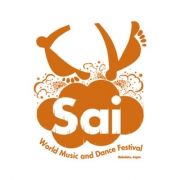
[Japanese]
先が見通せない世界。私たちワールズ・ミート・ジャパン、そして芸術祭スタッフが元町公園で大切にしている振る舞いについて改めて触れたいと思います。
文化や習慣、信仰や風俗の異なる人びとが集まったとき、どうしたら互いを尊重して過ごせるのか。どうしたら最高の思い出とともに故郷へ帰れるのか。
これらは、芸術祭の開催を通じて学んできたことです。
1. 「大きな主語」に注意:「通用するはず」が通用しない
仮に、経験の浅い新人のスタッフから「アーティストの外国人(○○人)が言うことを聞いてくれない」と相談を受けたら、先輩のスタッフは「○○人でなく、その人がでしょ」と訂正するでしょう。
元町公園、特にそのステージ裏では、私たちがよく耳にする「世間」や「常識」といった大きな主語は通用しません。そもそも、前提として通用するはずのものが通用しないことの方が多いです。
なので、一人ひとりと向き合って、なぜ、どうしてを説明することになります。時間はかかりますが、結局はそれが一番の近道だった、ということがよくあります。

2. 「ステレオタイプ」に注意:傾向はみられるが必ずしもそうではない
特定の国から、多数の出演の申し込みが寄せられた時期がありました。目的は不法滞在を疑わせますが、送られる資料が巧妙なこともあり、真偽の判定は一筋縄ではいきません。
いつだったか、事務局の私が冗談交じりに「この国からの申し込みは一律無視したらどうですか」と代表のイアンに聞いたところ、彼は悲しい顔で「たくま、そうかもしれないが、そうでないかもしれない」。
大きな主語と同様、単純化されたイメージ(この国はまずしいとか、信用できないとか)は、ときに正誤の判断を狂わせます。以後、こうした言動を慎むようにしています。
3. 「英語を話すアメリカ人」だけが外国人ではない
芸術祭に関わるようになって、ワン、ツー、スリーを含め「本当に英語がわからない」人たちと会いました。そんな彼らは、元町公園の交流と函館の滞在を思いっきりエンジョイしていました。
会場を見渡すと、英語の苦手なアーティストも芸術祭スタッフも、皆一様に楽しそうです。外国人→アメリカ人→英語→苦手→話したくない、という変な固定観念に取り憑かれ、その場を楽しめない自分に嫌気がさします。
ある年の芸術祭。ホテルでもめ事がありました。アーティストがそれぞれの母国語で(おそらく相手の悪口を)さんざん言い合っていました。
英語苦手だからな、どうしようかなと躊躇していたら、やがて声の調子が落ちついてきました。おそらく互いに言いたいことを言ったのでしょう。言われたことがなんとなく分かったのでしょう。
信じがたいことに、やがてどちらともなく手を差し出して、握手をして、それぞれの部屋へ戻って行きました。
4. 「過去を知る窓、未来への扉」
想定外が次から次に起ろうとも、アーティストが繰り広げる特設ステージのパフォーマンスを観れば、あぁやっぱり「異なる」人びとが集まるっていいなと思います。
民俗芸術は「過去を知る窓、未来への扉」です。民俗音楽や舞踊にはそれぞれの意味があり、表現も異なります。それは不変ではなく、時代を取り込みながら進化を続けます。それは毎年のように参加されるファンのみなさんが、一番感じておられることではないでしょうか。
会いたい人と会うために。
芸術祭が芸術祭であり続けるために。
私たちはこれからもより多くを経験し、その場にふさわしい振る舞いを身に付けたいと願っています。
そして言うまでもなく、世界が平和であることも。

写真は2008年3月、関係者を前に芸術祭のプレゼンを行った際のイメージ資料から
[English]
When people of different cultures, customs, beliefs, and manners gather together, how can we spend our time with respect for each other? How can we return to our homelands with the best memories? These are some of my reflections on organizing art festivals for many years.
For “big subjects”, sometimes “It should work” does not work
I have sometimes heard new staff expressing frustration with communication: “The people from such-and-such country don’t listen to me!” WMDF is fortunate that there is no shortage of experienced staff to help in moving the focus away from “such-and-such country” to the people at the core.
In Motomachi Park, especially behind the stage, the big subjects we often hear about, such as “the world” and “common sense” have diverse meanings. It isa learning experience to have so many of our assumptions challenged.
So,I do my best to help each staff member make some steps on a journey of discovery. It can take time, but in the long run, it is often the most rewarding.
Beware of “stereotypes”: a trend, but not necessarily a trend
Since we have to be responsible for artists from the time that they arrive in Japan until the time they leave, we need to have confidence in the people we select. Honestly speaking, there have been times when the festival received applications whose main purpose seemed to be not arts, but to gain entry into Japan.
At some point, I jokingly asked Ian the Director, “Why don’t we uniformly ignore all applications from these countries?” He looked sad and said, “Takuma, maybe so, maybe not.”
Like big subjects, simplistic images (like certain countries being untrustworthy) can sometimes throw off our judgment of right and wrong. Since then, I have tried to refrain from saying or doing such things.
“English-speaking Americans” are not the only foreigners
Since I became involved in the arts festival, I have met people who really don’t understand English (sometimes even not knowing how to count to three!) Yet, these people were enjoying the exchange in Motomachi Park and their stay in Hakodate to the fullest.
Looking around the venue, the artists and art festival staff, even those who were not good at English, all seemed to be enjoying themselves. I was upset with myself for not being able to enjoy the event because I was obsessed with the stereotype of foreigners, Americans, English, being not good at it, and not wanting to speak poorly.
One year at the festival, there was a dispute at the hotel. The artists were arguing in their native languages (maybe very colourfully). I hesitated, wondering what to do, since I’m not very good at English, but eventually the tone of voice calmed down. We probably said what we wanted to say to each other. I guess they kind of understood what was being said. It was hard to believe, but eventually, they both held out their hands, shook, and went back to their respective rooms.
A window to the past, a door to the future
When I watched the artists’ performances on the special stage, I really felt how good it is for “different” people to gather together.
Traditional arts are “a window to the past and a door to the future”. Music and dance bring with them their own meanings and different expressions. They are not unchanging, but continue to evolve with the times. I think that is what the fans who attend the festival every year feel the most.
To meet the people I want to meet.
In order for the festival to continue being an art festival, we hope to continue to experience more and learn how to behave in the right way. And, of course, that the world will be at peace.


